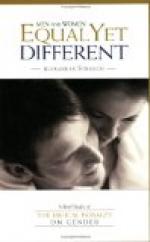asserted, too, that all this reform agitation was
the work of demagogues and infidels. Time has
proved that the common people of England were able
to record intelligent votes, and that they did prize
the privileges which were so reluctantly granted;
neither is infidelity any more rampant since liberty
has been given to the people to express their opinions
than it was before. Indeed, it has less material
upon which to feed and grow than it then had.
It is asserted by reverend divines that, to accord
women equal rights and privileges with men, is to
countenance infidelity. Such assertions have
yet to be proved to be truthful. Logically, the
position is untenable. There are many thousands
more infidels among men than among women. How,
then, can these divines make it appear that giving
to women equal civil and political privileges with
men would countenance infidelity, or tend to its increase?
Women being so much more generally religiously disposed
than men, the influence of the former, if allowed
its due weight in public affairs, would be much more
likely to neutralize the influence of the infidel
men now exercising the rights and privileges from
which women are debarred, and would thus contribute
to the development of a higher moral and religious
tone in community. Apply these men’s theory
to themselves, and they would quickly observe its
absurdity, as well as its shameful injustice.
It is said, too, that women are amply represented
by their husbands, brothers, or fathers; which is
not true, since wives do not always think as their
husbands do; daughters do not always see matters from
the same stand-point that their fathers do, any more
than sons; and sisters do not agree in opinion with
brothers, any more than brothers agree with brothers.
It is a well-known fact that, in all countries, fathers
and sons have entertained different views, both political
and religious, and have given public expression of
them; so, also, brothers have arrayed themselves against
brothers in civil and ecclesiastical contests.
It is absurd, therefore, to say that one member of
a family—even though he be the “head”—of
necessity represents the views of the entire family.
But, supposing it were true that the thing could be
done, it would be just as reasonable for women to
represent their fathers, husbands, sons, and brothers
at the polls as to be represented there by them.
It is urged that many women are frivolous, that they seem scarcely to have a serious thought, that the energies of their minds—if they have any—are bent upon the acquirement of a thorough knowledge of the latest foreign fashion, heedless whether they ruin father or husband or not. So there are—those especially who are taught to think it very “unfeminine” to be “strong-minded” enough to be independent, who deem it a fearful thing to bend mind or body to work for their own living, asserting, with an unwitting sarcasm, that “papa” or “husband” is the responsible head of the house, and that it




